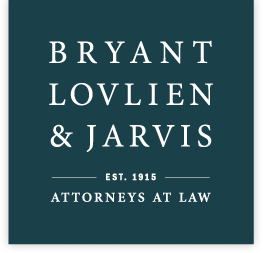My clients often ask me about the benefits that are available to them as veterans. In preparing an estate pan, veterans should be aware of some additional benefits that may be available to them for payment of long term care and other expenses.
Veterans Benefits
A veteran may be entitled to receive education and job training, home loan assistance, and health care benefits. In addition, if the veteran has served 20 years of active service or is disabled, he or she will receive retirement payments based on their salary and service history.
Veterans Pension
The U.S. Department of Veterans Affairs offers a pension benefit program for some wartime veterans and their families. The pension provides supplemental tax-free income to low income veterans who are over 65 or permanently disabled and their families. If the veteran served before September 7, 1980, the veteran must have served 90 days on active duty to be eligible for this benefit. If the veteran served after September 7, 1980, the veteran must have served at least 24 months on active duty. At least one day of the service must have been during a wartime period. In trying to qualify for the VA Pension, it is important to review the periods that the government defines as wartime. In addition, the veteran cannot have been dishonorably discharged.
Survivors Pension
If the veteran is deceased, the veteran’s spouse or child may be entitled to receive a Survivors Pension. If a child of a veteran is applying for this benefit, the child must be either under the age of 18, under the age of 23 and attending a VA-approved school, or have been disabled before the child reached age 18.
Aid and Attendance
If a veteran qualifies for the Veterans Pension, he or she may also be eligible for the Aid and Attendance benefit. Aid and Attendance is designed to help pay for assisted living and home health care. Veterans who qualify are eligible to receive up to $1,788 per month if he or she is single and $2,120 if he or she is married. A surviving spouse of a veteran is eligible to receive $1,149 per month. There are income and asset limitations to qualify for these benefits. The veteran’s income level is determined after deducting their current cost of care. There is no specific assets limitation although veterans cannot typically have assets greater than $50,000 for an individual and $80,000 for a couple. The applicant’s primary residence, car and personal belongings are not counted as part of their assets. The VA takes into account the applicant’s age and life expectancy in determining whether a veteran qualifies for the asset limits.
Estate Planning that applies to Everyone including Veterans
In regards to planning for death or disability, a veteran or the veteran’s spouse should have executed the following estate planning documents including a Durable Power of Attorney, Medical Authorization, Advance Directive and a Will or Revocable Living Trust.
The Durable Power of Attorney will allow their agent to handle that person’s financial affairs when they are living but no longer able to handle their own finances. The Oregon Advance Directive allows the health care representative to make medical and end of life decisions for them when they are no longer able to make the decisions for themselves. The Medical Authorization allows the appointed representative to speak with his or her doctors and review medical records. These documents allow the veteran to select the person that they feel will make the best decisions for them if they become unable to make certain decisions. They can select the same person or different people for financial and medical decision-making. Many people do not have close family relationships, so they may choose to nominate a trusted friend or a distant relative. Also some people have a stronger relationship with one child or a step-child and they may choose to nominate that person to avoid having family members argue about who should be making decisions.
If the veteran has assets to be distributed at death, they should also execute a Will or a Revocable Living Trust to designate to whom their assets should be distributed. In addition, they should review any accounts that they co-own with another person to determine if they want that person to receive those assets at death. They should also check their beneficiary designations to make sure that they have the correct beneficiaries named.
Veterans have some important programs available to them. Veterans, like everyone else, should have a comprehensive estate plan. Care should also be taken so veterans are receiving all the benefits to which they are entitled.

